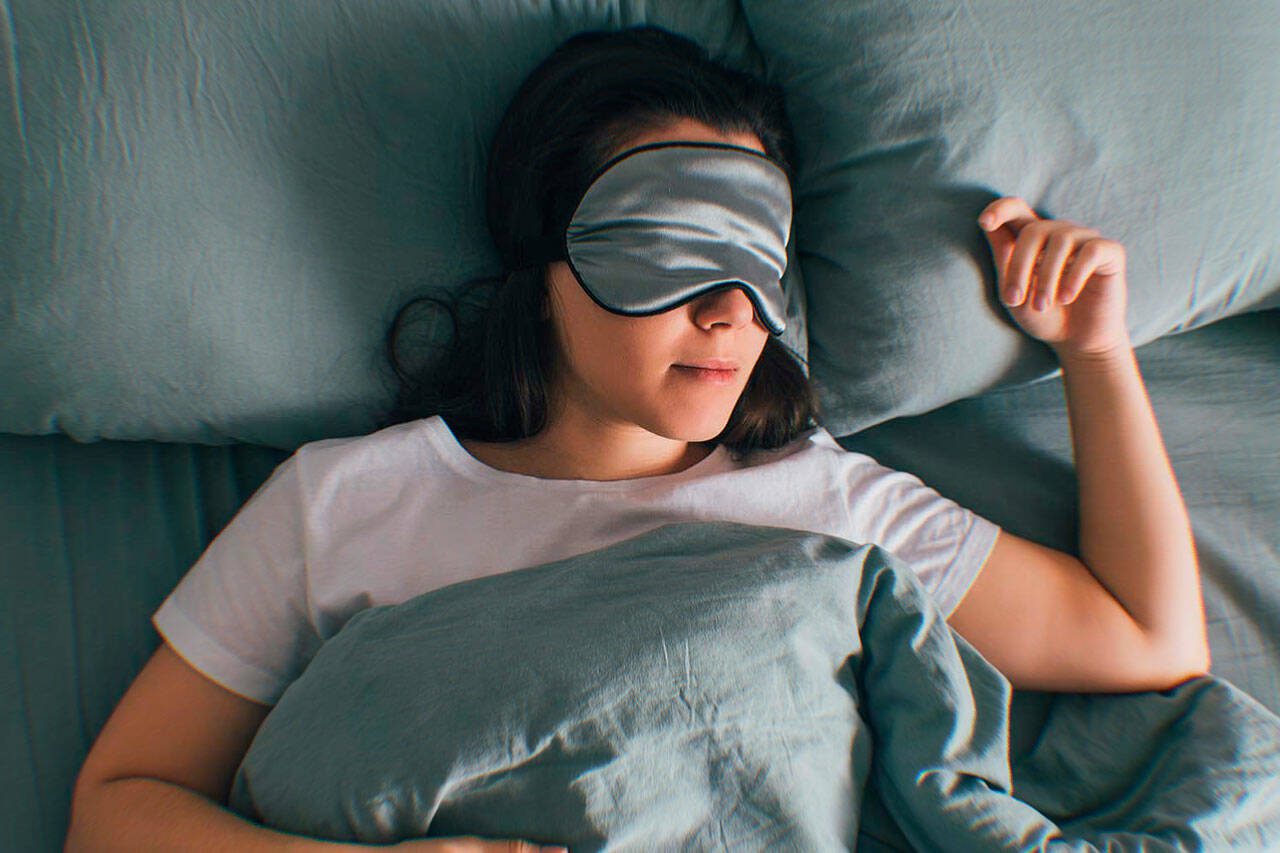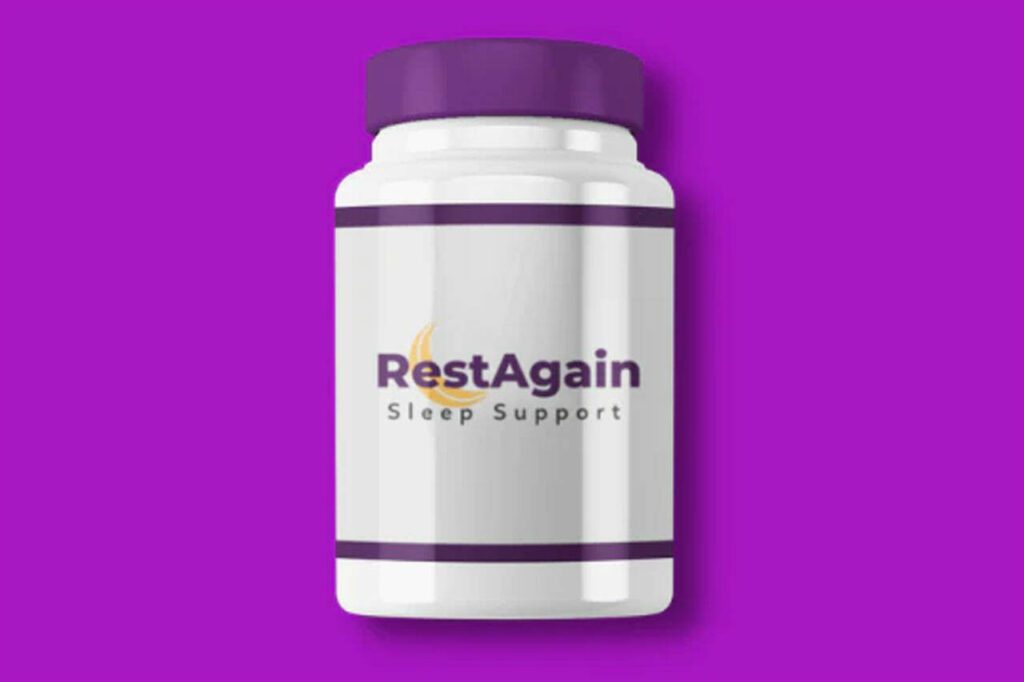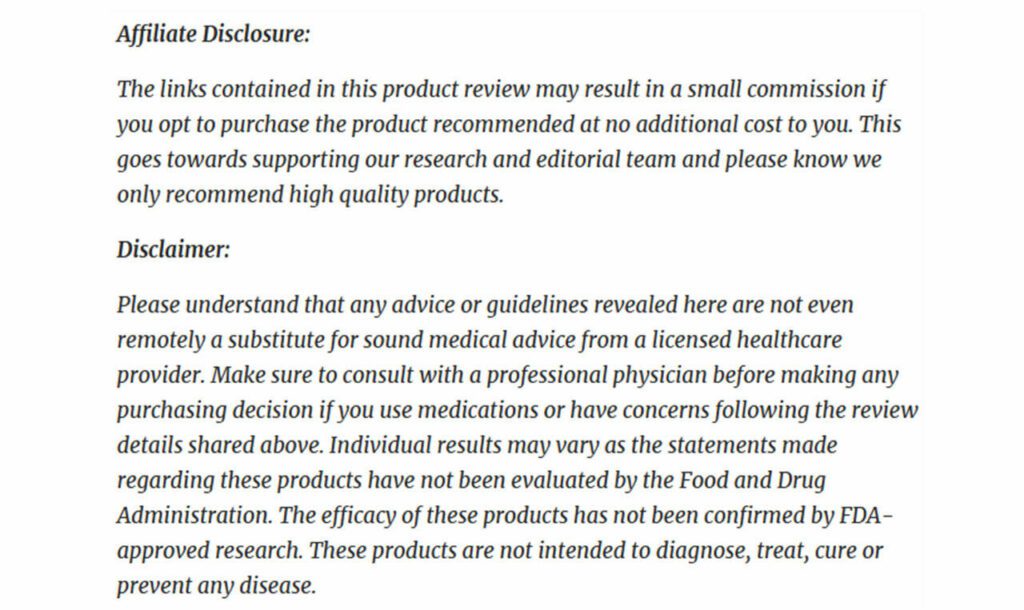We’ve all had those restless nights, tossing and turning, unable to quiet our minds and fall asleep. It’s frustrating. And we know how crucial a good night’s sleep is for our health and well-being.
That’s why we’ve taken the time to research and compile a list of the best sleep aids available. Whether natural remedies, over-the-counter options, or prescription medications, we’ve covered you if you’re having trouble sleeping.
So, if you’re struggling to get that much-needed rest, stick with us. We’re here to help you find the best solution to put your sleep troubles to bed.
What Are Sleep Aids?
Sleep aids encompass various solutions to promote a more robust and peaceful night’s sleep. These can range from prescription drugs to over-the-counter options that support healthy sleep function and physical items. Let’s delve deeper into each of these options.
Prescription Sleep Aids
Prescription sleep aids are potent medical solutions designed to treat significant sleep disorders like insomnia. They work by altering specific processes in your brain to help you fall asleep faster and stay asleep longer. But, it’s essential to bear in mind that these sleep aids need to be used with caution, as they may lead to dependence and other side effects. Always make sure to consult a healthcare provider before starting a regimen of prescription sleep aids for poor sleep.
Over-The-Counter Sleep Aids
For those struggling with occasional insomnia or jet lag, over-the-counter sleep aids may be of great help. One of the best sleep supplements that stands out is RestAgain, thanks to its clinically proven blend of melatonin, 5HTP, GABA, and valerian, as well as essential vitamins and minerals like magnesium and vitamin D. We’ll talk about it again in the best sleep aids section, as the OTC sleep aid is your best natural option for chronic insomnia.
RestAgain helps your body and mind achieve a state of calm, preparing for a night of restful sleep. Its careful selection and balanced dosages of ingredients promote both sleep onset and duration, leading to a therapeutic sleep experience.
Items To Help You Sleep
Turning our focus to non-supplemental products, numerous items can foster a serene sleep environment.
Nevertheless, before we get into the specifics of these products, we urge you to remember that everyone’s sleep preferences and needs will differ. You’ll need to consider multiple factors, such as price, overall sleep habits, and personal comfort, to find the best sleep aids.
Factors to Consider When Choosing a Sleep Aid
When opting for a sleep aid, it’s essential to understand that the best choice is often subjective – what’s practical for one person may not work for another. Consequently, several vital factors guide our recommendations. Let’s dive deeper into these considerations:
Safety
The first and foremost aspect to bear in mind is safety. Of course, when we’re talking about weighted blankets, you don’t particularly have to worry, but alternatives to sleep medication can be a bit riskier. Rest assured, Restagain, our top over-the-counter pick, adheres to high safety standards. With carefully measured dosages of ingredients like melatonin, 5-HTP, GABA, and valerian, it balances effectiveness with safety. Additionally, including essential vitamins and minerals, such as magnesium and vitamin D, further enhances its secure usage profile.
Effectiveness
A sleep aid’s effectiveness isn’t just about inducing sleep – the quality of sleep matters, too. Restagain ticks both boxes well. The blend of its ingredients helps our bodies gradually prepare for rest, encouraging deep, rejuvenating sleep rather than forced sleep onset.
Side Effects
Even the safest, most effective sleep aids can have potential side effects. Sleepiness or grogginess the next day, dependency, and tolerance are common concerns with sleep aids. Restagain also stands out in this area, with its consciously formulated mix of ingredients to minimize such issues.
Cost
While cost shouldn’t be a primary deciding factor when choosing a sleep aid, it’s worth considering. Restagain, while not the cheapest option available, offers excellent value for money, considering its safety, effectiveness, and minimal side effects.
In addition to sleep supplements like Restagain, we’ve also explored a range of physical items that can benefit your sleep environment. However, preferences and needs may vary widely, so it’s crucial to gauge what works best for your sleep routine.
Our information is not exhaustive but offers a good starting point when considering sleep aids. Consulting with a healthcare professional before starting any new supplement routine is vital.
Top Over-the-counter Sleep Aids
Searching for the right over-the-counter sleep aid can be a challenging task. Here, we aim to streamline the process by providing a detailed overview of the top contenders. Each product offers a unique approach to achieving a quality night’s sleep. We’ll dive into their specifics, including cost and potential pros and cons.
- RestAgain
RestAgain
We’ve encountered several sleep supplements, and RestAgain stands out. Priced moderately, this supplement combines key ingredients – melatonin, 5HTP, GABA, and valerian as well as a host of other ingredients, including the most common vitamin and mineral deficiencies that can disrupt sleep, all in ideal dosages that synergistically promote sleep. As far as OTC sleep aids go, RestAgain is a good standard and an excellent option to treat insomnia if you’re looking to avoid traditional sleeping pills.
- Price: Mid-range
Pros: Combines several sleep-promoting ingredients; dosages are optimal
Cons: Not suitable for daytime use, Can cause morning grogginess
Melatonin Supplements
Melatonin is your body’s natural sleep promoter, resetting your internal clock. More affordable than most, this supplement can help get your sleep schedule back on track.
Price: Low
Pros: Affordable, Helps in regulating sleep-wake cycle
Cons: Might not be effective for all sleep disorders, Can cause daytime sleepiness
Valerian Root
Valerian root is known to induce sleep and improve sleep quality. Although a bit on the expensive side, this herbal extract packs a punch when it comes to combating insomnia.
Price: High
Pros: Effective for insomnia, Herbal-based
Cons: May not be suitable for long-term use, Can lead to morning drowsiness
Diphenhydramine
As an antihistamine, diphenhydramine can treat more than just allergies. Though higher-priced, it’s also effective as a short-term sleep aid.
Price: High
Pros: Multipurpose, Effective for short-term use
Cons: May lead to dependence and comes with potential side effects like dry mouth
Herbal Teas
For those who prefer a natural route, herbal teas such as chamomile and lavender can be a great choice. Although moderately priced, they offer a soothing, relaxing routine before bed.
Price: Mid-range
Pros: Offers a calming routine, No significant side effects
Cons: May not be strong enough for severe sleep issues, Takes time to brew
Weighted Blankets
More than just a cozy comfort, weighted blankets promote a sense of security that can help improve sleep. They may cost more upfront, but the sleep benefits warrant the investment for many.
Price: High
Pros: Long-lasting, Comforting
Cons: Heavy, Can be hot in summer
White Noise Machines
White noise machines drown out disruptive sounds, offering a consistent audio backdrop conducive to sleep. They’re generally affordable and handy for light sleepers or city dwellers.
Price: Low
Pros: Affordable, Helpful for minimizing background noise
Cons: Some find the noise irritating, Not portable
Blue Light Glasses
Are you eyeing a low-cost solution to reduce the effect of evening screen time on your sleep? Look no further than blue light glasses. They help filter out sleep-disrupting blue light emitted by screens.
Price: Low
Pros: Filters blue light, Affordable
Cons: Not all glasses are equally effective, Can feel uncomfortable for some
Each of these sleep aids can be beneficial in its way. Consider the advantages and disadvantages and select the best option for your needs and lifestyle. You might find that combining a few aids helps you achieve the quality sleep you’ve been craving. Always consult a healthcare professional before starting any new supplement or product routine.
Natural Sleep Aids
When it’s time to hit the hay, but our brains won’t shut off, the quest for sleep can feel insurmountable. Luckily, natural sleep aids could provide the solution. However, as with manufactured sleep aids, it’s always wise to consult a healthcare professional before starting a new routine.
Exercise
Exercise is not just for keeping the body fit. It’s also a remarkable natural sleep aid. Regular physical activity can help reduce insomnia by decreasing arousal, anxiety, and depressive symptoms. It also aids in synchronizing our body’s internal clock or circadian rhythm, improving sleep quality and consistency.
Tip: Schedule workouts a few hours before bed to allow the body time to wind down.
Healthy Sleep Habits
A robust sleep routine is often an overlooked component of good sleep hygiene. Establishing and following a consistent sleep schedule can make a significant difference. Here’s what we can do:
- Maintain a regular sleep schedule, even on weekends
- Limit daytime naps to 30 minutes
- Avoid caffeine, alcohol, nicotine, and heavy meals close to bedtime
- Create a tranquil sleep environment, ideally dark, quiet, and cool
Relaxation Techniques
- Mindful meditation, deep breathing exercises, and progressive muscle relaxation reduce insomnia, improve sleep quality, and increase total sleep time.
- Mindful Meditation: A moment-to-moment awareness of our thoughts, feelings, and sensations promotes relaxation and acts as a natural sleep aid.
- Breathing Exercises: Deep breathing patterns aid in activating our body’s relaxation response, ultimately leading to better sleep.
- Progressive Muscle Relaxation: This involves tensing and releasing each muscle group, promoting overall physical relaxation and aiding sleep.
Remember, the quality of our sleep affects more than just our day-to-day life. It’s essential for our overall health and well-being. The right natural sleep aids, along with good sleep habits, have the potential to enhance our sleep quality dramatically.
FAQs About Sleep Aids and Supplementation
Q: What Are the Factors to Consider When Choosing a Sleep Aid?
A: Consider safety, effectiveness, side effects, and cost when choosing a sleep aid. Each corresponding solution has pros and cons, so weighing these when determining the best sleep aid for your needs is crucial.
Q: What Are Some Over-the-counter Sleep Aids?
A: The article discusses several over-the-counter sleep aids, such as RestAgain, melatonin, valerian root, and diphenhydramine. Other aids like herbal teas, weighted blankets, white noise machines, and blue light glasses are also mentioned.
Q: Can I Combine Different Sleep Aids?
A: According to the article, combining certain sleep aids might help achieve a better sleep quality. However, it emphasizes the importance of consulting with a healthcare professional before starting any new routine or combination.
Q: Are There Natural Sleep Aids?
A: Natural sleep aids include lifestyle changes such as routine exercise, maintaining healthy sleep habits, and practicing relaxation techniques.
Q: What is The Best OTC Sleep Aid?
A: RestAgain is highlighted in the article as one of the potential sleep aid periods, but it is by far the best for OTC options. Please refer to the main article for details on the product’s effectiveness.
Q: What Role Do Weighted Blankets, White Noise Machines, and Blue Light Glasses Play?
A: Weighted blankets, white noise machines, and blue light glasses are mentioned as sleep aids. Weighted blankets offer a sense of security, white noise machines mask disruptive ambient noises, and blue light glasses filter out blue light that can interfere with sleep.
Conclusion: What Are The Best OTC Sleep Aids
We’ve explored a variety of sleep aids, each with its unique benefits and drawbacks. Whether it’s the natural effects of melatonin, the soothing properties of herbal teas, or the comfort provided by weighted blankets, there’s a solution for everyone. Remember, it’s often about finding the right combination that works for you. RestAgain, white noise machines, melatonin supplements, and blue light glasses are just a few options that may enhance your sleep quality.
But don’t forget about natural methods like regular exercise and good sleep hygiene. Most importantly, always consult with a healthcare professional before changing your routine. With the right approach, we’re confident you’ll find the best sleep aid for your needs. Here’s to a good night’s sleep!




























